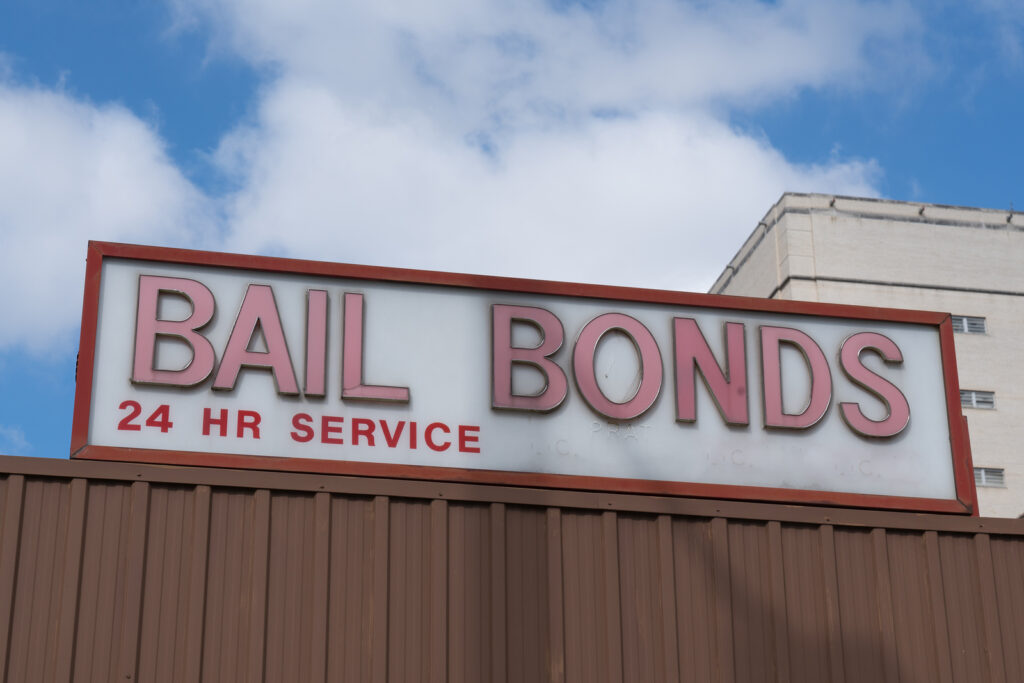In the labyrinth of legal jargon and financial commitments within Indiana’s bail system, one term often sends chills through the spines of both defendants and their families: “collateral.” Collateral, the asset pledged to secure a bail bond, is considered the safety net for bail bondsmen, ensuring that the defendant complies with their legal responsibilities.
But what happens when that safety net is invoked through the process of repossession? This comprehensive guide unveils the intricacies of the collateral repossession process in Indiana, safeguarding your assets from the snags of the bail system.

Understanding Collateral in the Indiana Bail Bond Landscape
Collateral for Bail Bonds
Indiana bail bond collateral is the tangible guarantee required by a bail bond agency to secure the release of a defendant who might not otherwise be eligible for an unsecured bond or personal recognizance. It serves as a promise that the defendant will appear in court as scheduled. Should the defendant fail to uphold this obligation, the bail bond company can claim the pledged collateral.
Types of Collateral Commonly Used for Bail
Assets can come in various forms, and the same holds true when they’re offered as collateral. Cars, real estate, stock, businesses, and valuable jewelry are among the most common types of collateral used to secure Indiana bail bonds. Understanding the value of the asset and the process for appraisal is crucial for both the bail bond company and the defendant.
The Fine Print on Collateral in Your Bail Bond Agreement
Every financial transaction comes with its quota of paperwork, and bail bond collateral is no different. Your bail bond agreement is the legal document that outlines the collateral’s specific terms and conditions. This includes how the value of the asset has been determined, the duration it will serve as collateral, and the procedures for repossession.
The Process of Repossessing Bail Bond Collateral in Indiana
Legal Framework and Bail Bond Regulations
Indiana’s legal framework dictates the nuanced approach to collateral repossession. Bail bond companies must adhere to state regulations on repossession which are designed to protect the rights of the defendant and the co-signer, ensuring a fair process.
The Repossession Process from Start to Finish
The repossession process is initiated if the defendant fails to appear in court, resulting in forfeiture of the bond. The bail bond company has the right to seize the pledged asset, following a specific set of procedures that must conform to the state’s legal requirements.
The Aftermath of Repossession and Asset Liquidation
Once an asset is repossessed, the bail bond company may choose to liquidate it to recover the forfeited bond. The funds obtained from the sale or other disposition of the asset are then applied toward the defendant’s bail forfeiture amount. Transparency in this process is essential to ensure that all parties involved understand the final financial implications.
Rights and Responsibilities of the Parties Involved
Leniency for Defendants and their Co-Signers
In cases where repossession becomes a possibility, it is crucial for the defendant and their co-signer to understand their rights and any available provisions that may provide an alternative or an extension.
Compliance with Bail Bond Terms
One of the defendant’s principal responsibilities is to comply with the terms of their bail, which includes appearing in court as scheduled. Failure to do so can lead to the invocation of the bail bond collateral and the subsequent repossession process.
Fair Practices from Bail Bond Companies
Bail bond agencies have the responsibility to pursue repossession in a lawful and respectful manner. This means following Indiana statutes to the letter and communicating clearly with the defendant and their co-signer throughout the process.
Secure Your Assets: A Guide for Defendants and Co-Signers
Understanding the Risks Involved with Offering Collateral
Before pledging an asset as collateral, it is essential for the defendant and co-signer to be fully aware of the risks involved, as repossession can have long-term financial implications. Seeking legal counsel or the advice of a reputable bail bond agent can provide clarity on these risks.
Communication is Key When It Comes to Your Collateral
Open lines of communication between all parties involved in a bail bond transaction can prevent misunderstandings and missteps. Regular updates on the case and changes in the defendant’s situation can help avoid surprises related to collateral repossession.
Preparing for a Worst-Case Scenario
Although no one expects to face the repossession of their pledged assets, prudence dictates being prepared for such an eventuality. This preparation can include maintaining records related to the asset, understanding its value, and being informed about the repossession process.
Professionals in the Bail Bond Industry to Turn To
The Role of Legal Advisors in Protecting your Rights
Legal advisors play a crucial role in protecting the rights of defendants and their co-signers. They can provide counsel on the best course of action to avert or handle the repossession of bail bond collateral in Indiana.
Trustworthy Bail Bond Agents and Due Diligence
Not all bail bondsmen are created equal. Due diligence in selecting an agent can ensure that you work with a professional who is well-versed in Indiana bail laws and is committed to fair practices when it comes to collateral repossession.
Community Services and Support for Defendants and Families
Community organizations and support services can provide invaluable resources for those navigating the complexities of the bail system. From financial counseling to legal aid, these services can offer assistance in challenging times.
In Closing
As unsettling as the prospect of collateral repossession may be, it’s an integral aspect of Indiana’s bail process. For defendants and co-signers, understanding the ins and outs of this element is vital for safeguarding their assets and making informed decisions. By staying informed and engaging with professionals who have experience in the Indiana bail system, individuals can approach the collateral process with clarity and confidence.
For the Hoosiers of Indiana, the path to navigating the repossession of bail bond collateral is not one to take lightly. This comprehensive guide serves as a beacon, illuminating the route to asset protection and informed action. Whether you’re a defendant, a co-signer, or a supporter, the quest for understanding and preparedness in the face of bail bond collateral repossession is an odyssey that demands attention and a proactive spirit.
Are you looking for a Noblesville bail bond company that you feel comfortable with and that you can afford? Contact us at 317-919-2489 to get started with prearranged Hamilton County Indiana bail bond services you can trust. We operate 24/7 and offer free advice and jail information too.
Related Posts:
The Fine Print: Deciphering the Terms of Your Bail Bond Agreement
Using Collateral for Bail Bonds: A Comprehensive Guide
What are No Collateral Bail Bonds?









